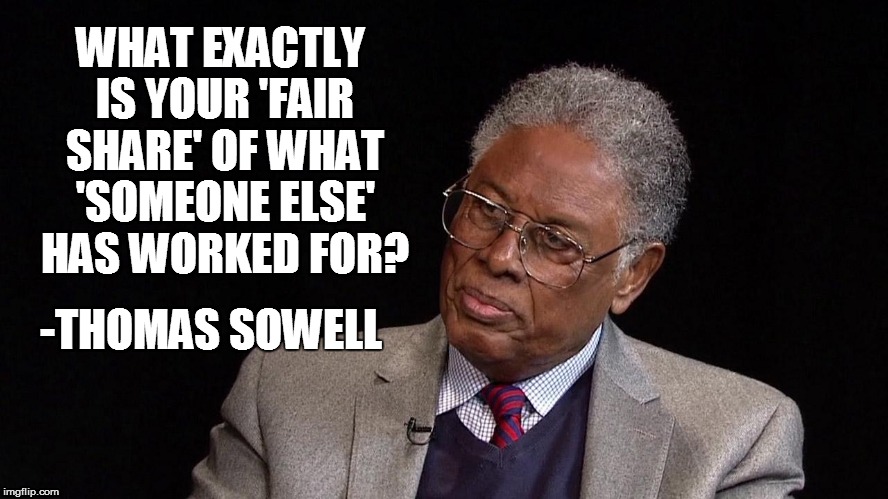Truth2Know
Gold Member
- Dec 18, 2014
- 352
- 197
- 190
To answer this question, “fair share” must be defined. For this analysis, I propose that “fair share” is an equal contribution by all people that benefit from government services. The notion of having to pay a higher portion in taxes because you earn more isn’t “fair” and it does disservice to the word “share.”
While all Americans benefit (hopefully) from what our Federal government does, it is not realistic to include all 319 million people (per the 2014 census) as equal sharers in the cost of these benefits. Children, the elderly, the infirm, etc. should be excluded. So how many people should be included in the calculation?
Data from 2012 (http://www.forbes.com/sites/joshbarro/2012/04/17/everything-about-this-drudge-headline-is-wrong/) indicate 85 million tax paying units (a “unit” is one single or one joint filer) paid Federal income tax; 44% of the 85 million were assumed to be joint filers. Data from 2013 (http://www.businessinsider.com/43-of-americans-dont-pay-federal-income-tax-2013-9) indicate that 43% of households paid no Federal income tax in 2013. Assuming that 44% of these were also joint filers, the total number of individual tax payers is about 215 million. I know, lots of assumptions, but it’s just an estimate. When you consider that there were about 200 million people between 18 and 65 in the 2014 census, using 215 million as the number of individual taxpayers isn’t too bad.
Now, on to revenue. For 2013, $1.316T in individual income tax was collected; the total for Social Insurance Taxes was $0.948T (https://www.cbo.gov/publication/44711). Dividing these revenues by 215 million gives the “fair share” for each individual tax payer:
Federal Income Tax: $6,121 Social Insurance Taxes: $4,409
Total fair share of Federal taxes for single filers: $10,530
Total fair share of Federal taxes for joint filers: $21,060
So, are you paying your fair share of these taxes? Check boxes 4 and 6 on your W-2s to determine your Social Insurance taxes and line 63 on your 1040 for your Federal Income tax.
After going through this calculation, I realize that some people are paying much more than their fair share of Federal taxes. Thank you for doing this, because it surely isn’t me.
While all Americans benefit (hopefully) from what our Federal government does, it is not realistic to include all 319 million people (per the 2014 census) as equal sharers in the cost of these benefits. Children, the elderly, the infirm, etc. should be excluded. So how many people should be included in the calculation?
Data from 2012 (http://www.forbes.com/sites/joshbarro/2012/04/17/everything-about-this-drudge-headline-is-wrong/) indicate 85 million tax paying units (a “unit” is one single or one joint filer) paid Federal income tax; 44% of the 85 million were assumed to be joint filers. Data from 2013 (http://www.businessinsider.com/43-of-americans-dont-pay-federal-income-tax-2013-9) indicate that 43% of households paid no Federal income tax in 2013. Assuming that 44% of these were also joint filers, the total number of individual tax payers is about 215 million. I know, lots of assumptions, but it’s just an estimate. When you consider that there were about 200 million people between 18 and 65 in the 2014 census, using 215 million as the number of individual taxpayers isn’t too bad.
Now, on to revenue. For 2013, $1.316T in individual income tax was collected; the total for Social Insurance Taxes was $0.948T (https://www.cbo.gov/publication/44711). Dividing these revenues by 215 million gives the “fair share” for each individual tax payer:
Federal Income Tax: $6,121 Social Insurance Taxes: $4,409
Total fair share of Federal taxes for single filers: $10,530
Total fair share of Federal taxes for joint filers: $21,060
So, are you paying your fair share of these taxes? Check boxes 4 and 6 on your W-2s to determine your Social Insurance taxes and line 63 on your 1040 for your Federal Income tax.
After going through this calculation, I realize that some people are paying much more than their fair share of Federal taxes. Thank you for doing this, because it surely isn’t me.


